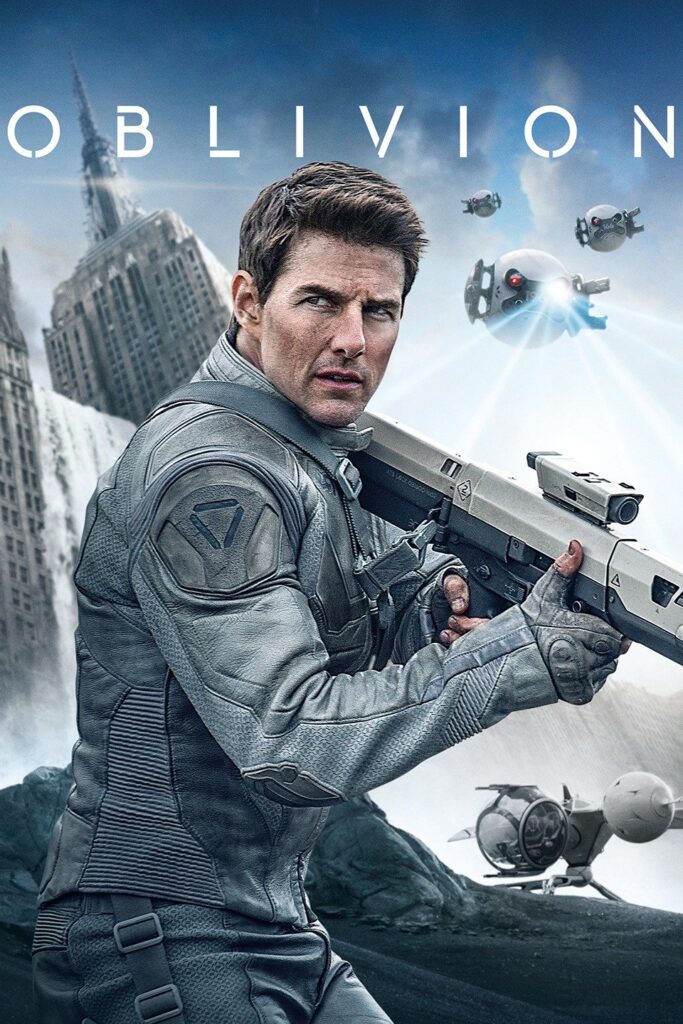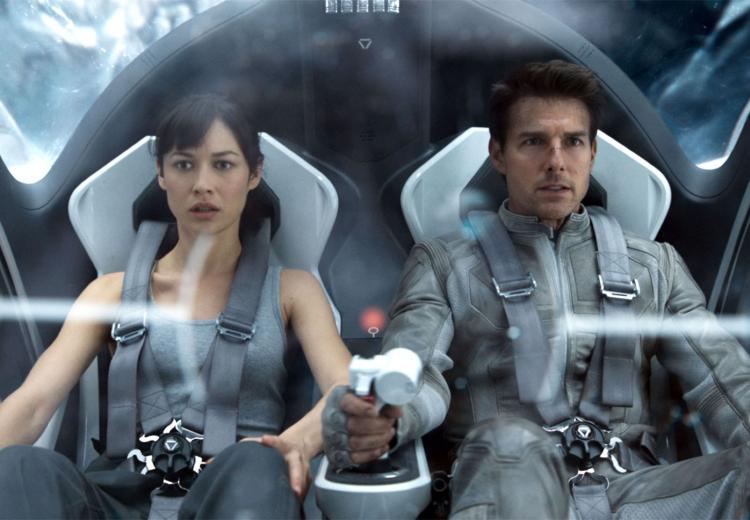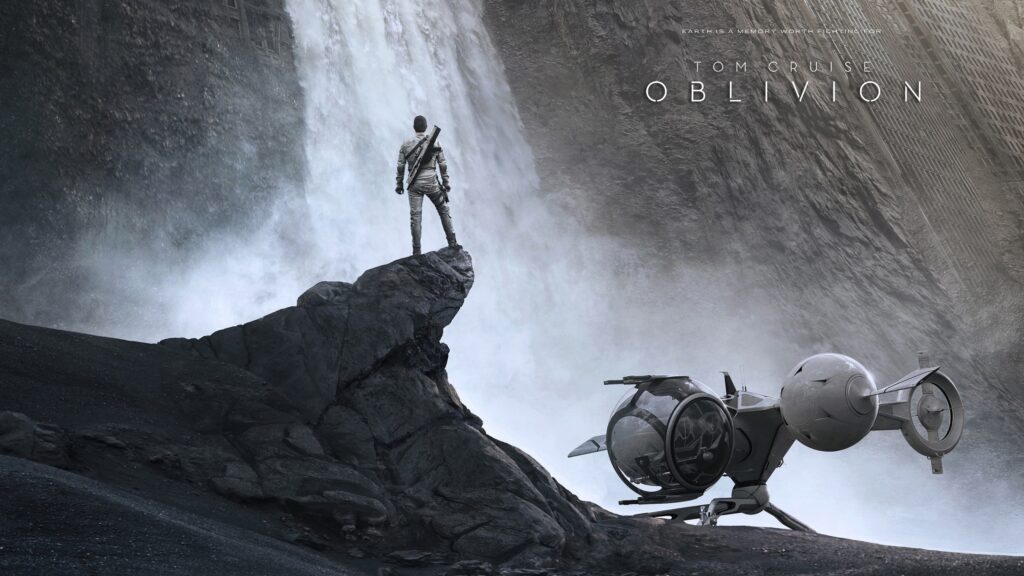I rewatched 2013’s Oblivion this week with the family. There’s a great deal to enjoy here: the production design is immaculate, the sound design may be even better, and Tom Cruise is as watchable as ever in his usual highly-competent-but-still-slightly-vulnerable-protagonist role. But the film suffers from one of my least favourite tropes: what I might start calling ‘The Secret Plot’. Meaning characters keep important plot points and vital information secret from each other FOR NO REASON…

Warning, spoilers ahead!
In the film, Tom Cruise and Andrea Riseborough are astronauts who have been found and duplicated at the edge of the solar system by a malign alien intelligence, a vast von Neumann probe intent on taking over the Earth and draining it of its resources. The probe uses hundreds of mind-wiped Cruises and Riseboroughs as a clone army of brainwashed caretakers to police a post apocalyptic Earth as it siphons off the last of the planet’s water for fuel, keeping its identikit security force pacified with a fabricated story about how humanity is migrating to Titan.
But then a ship crash lands with Tom’s wife on board, played by Olga Kurylenko. She was one of the other astronauts on the ship that first encountered the probe, but luckily she was ejected before the probe could assimilate her and has been orbiting the Earth in suspended animation ever since. Now that she’s back with Tom and thawing out, she should surely realise that things are not as they should be, yes? She is a survivor from the pre-invasion days. She knows Tom intimately – they’re married! She was a work colleague of Andrea! She’s definitely going to start asking questions about what’s going on, right?
… Right?

Nope. No, she cries a bit and laughs a bit and looks quizzically at everyone involved. And that’s it. Never does she ask ‘what’s going on?’, or ‘where are all the people?’, or even ‘don’t you remember we’re married, you dolt?!’
The reason is clear: if she tells Tom what she knows, the film will suddenly be 45 minutes shorter. Most of the mysteries will be cleared up in a short conversation and the audience will be denied the fun of gradually learning the truth at the same time as the characters. So instead we’re stuck with ‘The Secret Plot’.
There could be lots of believable reasons why Kurylenko might not spill the beans immediately. I can think of a bunch of them now. Suspended animation brain fog. Maybe she doesn’t wake up for 72 hours after landing, even though the story continues. Maybe Riseborough’s character sabotages the ‘waking protocol’ in a jealous fugue. Perhaps an accident on re-entry means Kurylenko has a brain injury that needs the med-bot to operate on her and keep her sedated for two days. Any of those could work.
But we get none of them. Instead there’s just a bit of vague laughing and crying and a nagging question at the end of the movie: why didn’t she say something?

It’s a way overused trope. ‘Lost’ famously relied on it week after week. Characters would regularly make earth shattering discoveries and then tell NO-ONE about it. It makes you question if the writers have ever had many conversations with real people. The world is full of folks who can’t keep their mouths shut in any circumstance. We live in an era of chronic over-sharing where people can barely eat a meal without sending a photograph of it to everyone they know. Who doesn’t have an aunt that silts up their Facebook or Twitter feeds with endless crap that they’ve ‘discovered’ and that they can’t keep to themselves? So how come films and TV shows are all populated by taciturn enigmas who play their cards so close to their chests that it’s hard to be sure they’re in the game at all?
This is an avoidable problem. If you find yourself having to resort to ‘The Secret Plot’, I’d ask that you just think a bit harder. What would your characters really do in this situation? And if you’re confident they’d keep schtum, please make sure you have a reason for it. The mystery will always be more satisfying as a result.
